The downloadable version of the draft programme is available here.
Room: Small Auditorium
Visit 1 - Human Power Hub – Social Innovation Center of Braga
Showcase its role as a catalyst for social innovation in Braga. Guests will explore collaborative spaces, meet with social entrepreneurs, and learn about impactful projects addressing urban and social challenges. The experience highlights HPH's commitment to fostering sustainability, inclusion, and community-driven solutions.
Visit 2 - Viva o Bairro e Pulsar
The visits to “Viva o Bairro” and the Pulsar program highlight initiatives that promote urban revitalization and community well-being. “Viva o Bairro” focuses on the renewal of public spaces, creating more welcoming and accessible environments, while Pulsar is a physical activity program for cancer patients in rehabilitation, offering personalized support to promote not only physical recovery but also mental and social well-being. Together, these initiatives demonstrate how urban renewal and health programs can strengthen community bonds and enhance quality of life.
Visit 3 - INL – Iberian International Nanotechnology Laboratory
Explore cutting-edge scientific research projects at this research facility. The INL was founded by the governments of Portugal and Spain under an international legal framework to perform interdisciplinary research and deploy and articulate nanotechnology for the benefit of society. INL aims to become the worldwide hub for nanotechnology addressing society’s grand challenges.
Visit 4 – Gnration e Startup Braga
The visit to Gnration and Startup Braga will highlight the synergy between culture, technology, and entrepreneurship that defines Braga’s innovative ecosystem. At Gnration, participants will explore how the fusion of art and technology fosters creativity, showcasing pioneering projects that position Braga as a hub for cultural innovation. At Startup Braga, the focus shifts to entrepreneurship, with the presentation of disruptive projects in fields like AI, biotechnology, and sustainability, alongside the support systems that help startups scale globally.
Visit 5 – Municipal Market
The visit to the Municipal Market emphasizes its commitment to sustainability and the promotion of local products. It highlights the market’s role in supporting the community, preserving traditions, and fostering a connection between producers and consumers, showcasing Braga’s dedication to sustainable development and cultural heritage.
Visit 6 - Walk with the National Capital of Culture Braga 2025
This study visit includes the neighborhoods of Fujacal, Fontainhas, Quinta da Capela, Makro, and Parretas, as well as Contra-Quiosque exhibition spaces.
Contra-Quiosque revisits and rehabilitates the legacy of five disused kiosks in Braga to transform them into exhibition spaces.
These kiosks will open at the same time according to a route that will showcase five artistic works resulting from artistic residencies developed by other artists: Emilia Rigová, Hilda de Paulo, Maria Trabulo, Marta Machado and Miguel Teodoro. These works are the result of artistic investigations into private collections and/or institutional archives of less representative communities in Braga, uncovering new stories and representations of the city.
Fujacal, Fontainhas, Quinta da Capela, Makro and Parretas are five densely populated residential areas in Braga.
Quinta da Armada, Lameiras and S. Vicente are three areas where there are urban gardens in the city. The Shape of Neighbourhood Architecture and Art Festival aims, in co-creation with architects, artists and the inhabitants and visitors of these places, to create new living spaces.
In 2025, eight temporary architectural installations will be built in each of these places, designed to host Braga 25 activities and works commissioned from eight artists, as well as meetings of residents and neighbourhood actions.
Room: Meeting room N° 1
As digital spaces increasingly shape public discourse, social interaction, and democratic participation, cities are under growing pressure to address online harms such as hate speech, misinformation, and polarisation. While municipalities often find themselves on the front line, their role in the digital realm—and the tools available to them—remain unclear and frequently underutilised.
This training workshop will explore how European cities can take a more active role in fostering safer and more inclusive digital environments. Drawing on insights from the Safe Digital City programme by Nordic Safe Cities, the session will present practical strategies and lessons learned from addressing online risks and building digital resilience. Topics will include identifying the targets of online hate, understanding which issues drive polarisation, recognising the events that trigger online hostility, and exploring how city officials and municipalities can take effective preventive action to protect residents from harmful digital content.
With a strong focus on the municipal role and room for manoeuvre, we will delve into cross-sector collaboration and local prevention initiatives. The session is case-based and designed to inspire concrete action through real-world examples and peer-to-peer dialogue.
The registration for the Eurocities Academy is now closed. If you would like to join the waiting list, please contact us at guillem.ramirez-chico@eurocities.eu.
National meeting for German cities: Meeting room N° 3
National meeting for Spanish & Italian cities: Congress room 1&2
National meeting for Swedish cities: Meeting roon N° 4
National meeting for Finnish cities: Meeting room N° 2
Meeting for non-EU members: Meeting room N° 5
Venue: Colunata dos Eventos, Parque do Bom Jesus, 4715-261 Braga, Portugal
Format: walking dinner
Dress code: business casual
Welcome speeches at 21.00 followed by some artistic performance.
On June 5th between 7:00 and 8:00 am, you can join a Walking and Running session, suitable for all fitness levels. This programme aims to provide technical guidance to all participants who wish to start running or simply engage in physical activity to combat a sedentary lifestyle. The session includes a brief warm-up, followed by coordination exercises focusing on running technique, and concludes with strength training exercises.
Room: Grande Auditorio
The 2025 Eurocities Annual Conference takes place at a defining moment for urban Europe, as a new EU policy agenda emerges that could reshape the role of cities in European governance. Against the backdrop of recent crises—including the pandemic, the war in Ukraine, and migration challenges—cities have proven vital in maintaining essential services and social cohesion. Yet, their political and financial empowerment remains insufficient. This panel will explore how EU institutions and city leaders can forge a new partnership, ensuring cities have direct access to funding, tools for private investment, and a stronger role in EU decision-making.
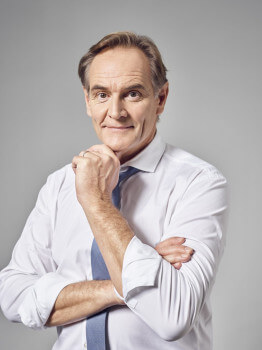
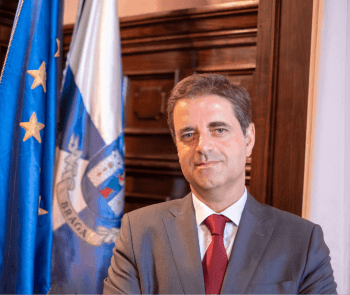
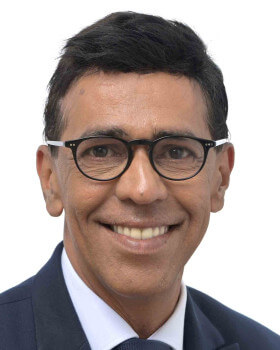
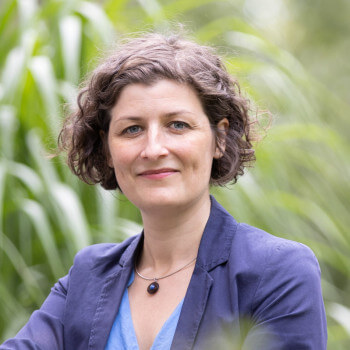
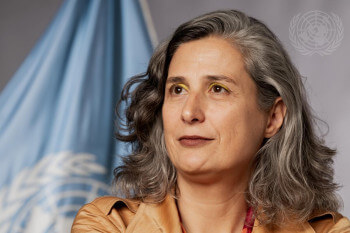
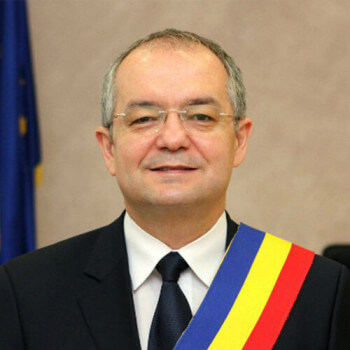
1. Open Cities: unlocking public spaces for all
Room: Congress room 3
Investing in public spaces that are vibrant, accessible and sustainable is key to good quality of life in cities.
Local authorities have the power to transform urban spaces, making them greener, more inclusive, and ultimately more attractive. This is done through smart urban planning, urban regeneration with sustainability in mind, cooperation with various actors, and a good dose of cultural vibrancy.
From open squares to public libraries, from brownfields to new housing areas, shared spaces are multiplying, offering opportunities for more social interactions and for different uses, involving a diversity of people.
How do cities invest in quality, vibrant and inclusive public spaces? From new design and planning approaches to cultural approaches to urban planning, the session will highlight local practices while investigating enablers for vibrant public spaces, including innovative governance models, new partnerships and connections between different thematic public policies.
Speakers:
- Bailie Annette Christie, Deputy Mayor, Glasgow
- Heather Mack, Deputy Leader of City Council, Bristol
- Joana Menezes Fernandes, Head of culture and head of Braga PT capital of culture 2025, Braga
- Finn Williams, City architect, Malmo
Moderator: André Sobczak, Secretary General, Eurocities
2. Ambitious Cities: shaping public procurement to boost competitiveness
Room: Congress room 4 & 5
Public procurement is one of the key tools available to cities to implement their investment strategies and drive sustainable transformation. Its potential, however, remains hampered by the shortcomings and fragmentation of the EU and national legal frameworks, as well as a lack of resources and skills for the uptake of innovative approaches to public buying.
This session will discuss current city strategies to adopt new approaches to public procurement, leveraging purchasing power to promote environmental and social innovation; the most significant ‘pain points’ of the current EU legal framework as well as suggestions for improvement; and what kind of capacity-building activities need to take place for urban public buyers to be able to fully embrace and implement an ambitious procurement strategy.
The outcomes of the discussion will feed into Eurocities advocacy work on public procurement, including the upcoming revision of the EU Public Procurement Directives.
Speakers:
- Michiel Scheffer, Board President, European Innvovation Council (EIC)
- Mervi Heinaro, Deputy Mayor, Espoo
- Mark Boekwijt, EU Representative, Amsterdam
- Soo-Jin Kim, Deputy Head, Cities, Urban Policies, and Sustainable Development Division, OECD
Moderator: Valentina Schippers-Ooejko, Europe Coordinator, Haarlem
3. Thriving Cities: Investing in homes, Investing in Europe
Room: Small Auditorium
Across Europe, more and more cities are facing a dire housing crisis, affecting urban populations, from the most vulnerable individuals to essential workers. Local governments are using all available tools at their disposal to prevent housing from becoming a luxury that only a few can afford.
Given the multi-faceted nature of this crisis, collaboration between all levels of governments is essential and the EU has a key role to play. Besides revising legislation to create a favourable framework for sustainable, affordable housing, giving cities access to EU funds and investments is one of the most urgentresponses required at the EU level.The session will address the following questions:
- What opportunities do the ongoing revisions of EU funding instruments, including InvestEU, present for cities in their fight against the housing crisis?
- How to ensure the next EU budget will secure some funding to tackle the housing crisis?
- How do we ensure that the future European affordable housing plan and its pan-European investment platform will provide tools that are targeted to local needs?
Speakers:
-
Simona Bieliune, Deputy Mayor for Social Affairs, Night time Economu, Cultural Affairs and Healeth, Vilnius
-
Laia Bonet, Deputy Mayor for Urban Planning, Ecological Transition, Urban Services, and Housing, Barcelona
-
Hélène Duvivier, Vice-President responsible for European and International Relations, Decentralized Cooperation, and Tourism, Lyon Metropole
-
Diana Santos Lima, Press and Media Officer, Housing Task Force, European Commission,
-
Gavin White, Executive Member for Housing and Development, Manchester
Moderator: Thomas Lymes, Head of Advocacy, Eurocities
On invitation only
Room: Congress room 1 & 2
Online hatred and polarisation are on the rise across Europe, increasingly shaping public discourse and threatening democratic participation. Women in political and leadership roles are disproportionately targeted, facing gender-based abuse intended to silence, intimidate, and push them out of public life. This trend has serious implications for democratic engagement, public trust, and gender equality in city leadership.
For city leaders, this represents both a personal and institutional challenge: how to ensure safety, foster inclusive digital spaces, and uphold democratic values.
This interactive lunch session will explore the scale and impact of online abuse, drawing on recent data and key insights. Participants will be invited to reflect on their own experiences, share ideas, and learn about emerging local strategies to combat online hatred.
Organised in partnership with Nordic Safe Cities, the session will feature brief presentations followed by an open discussion to encourage peer exchange and clear takeaways.
Room: Grande Auditorio
This discussion draws on insights from the Eurocities Pulse 2025 to reflect on shifting urban priorities, the evolving role of cities in the EU, and the future of city leadership. The mayors will share perspectives on managing complex challenges, the growing role of cities in EU policy, and strategies to manage complex urban agendas. They will also explore ways to deepen cooperation between EU institutions and city networks, while expressing their hopes and vision for Eurocities.

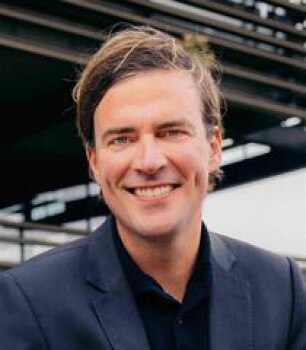
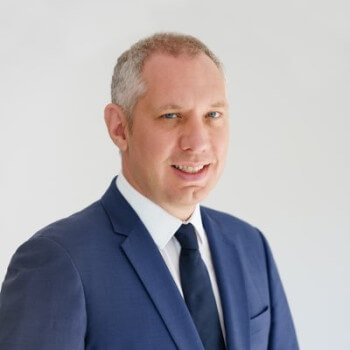
Room: Grande Auditorio
The annual Eurocities Awards celebrate exceptional achievements by cities and individuals who are working to improve the quality of life for their residents and address Europe’s most pressing challenges.
- The City Heroes award recognises politicians and city officials for their exceptional leadership or initiatives, whether at the local or European level.
- The Inspiring City Initiative award highlights cities that are setting the standard in creating equitable opportunities, fostering inclusivity, and investing in long-term prosperity for their residents.
Room: Congress room 3
Would you like to learn from your European counterparts working on international and/or European Affairs? Join our Learning Loop session to learn from pilot projects, new strategies and recent challenges faced by experienced colleagues from other member cities!
This session will start with the following four short pitches, bringing different perspectives on the work of International/European Affairs departments:
Krista Kampus, Head of EU and International Affairs, Tallinn: Krista will pitch the strategic document ‘International Tallinn 2035’, recently adopted by the Tallinn City Government. This strategy sets the goals for the city's internationalisation and city diplomacy for the next ten years. Krista will introduce the strategy and the process behind its creation.
Gianluca Saba, Head of International Relations, Genoa: Gianluca will share how Genoa and Prague managed to work together on a European Urban Initiative (EUI) city-to-city exchange on sustainable tourism. Gianluca will focus on the benefits and the challenges of such a capacity-building programme for both Genoa and Prague.
Sandra Spöttl, Head of European and International Affairs, Munich: Sandra will pitch a pilot project, the “Co-financing Fund”, which ran from 2022 to 2024. This fund aims to guarantee and accelerate co-financing of international/ EU-funded projects to achieve Munich's climate neutrality target. Sandra will present the results, the challenges and the future of this pilot project.
Felip Roca, Director of International Relations, Barcelona: Felip will share his experience and reflections on how to combine and coordinate the involvement of cities in networks like Eurocities and the more spontaneous political initiatives, as Mayors4Housing for example, and how both spheres can benefit from the other.
After these four pitches, we will split into smaller groups to be able to exchange on the learnings, the challenges, the solutions and the transferability of these ideas to your city. You will be able to choose the group you’d like to join at the end of these four pitches.
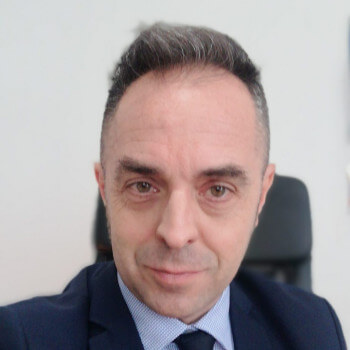
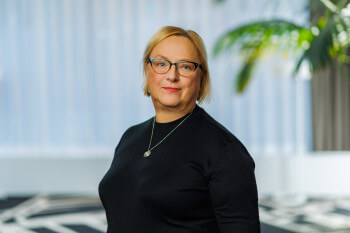
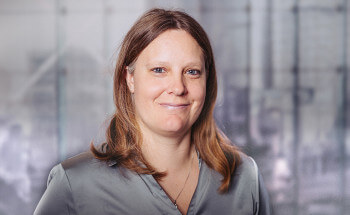
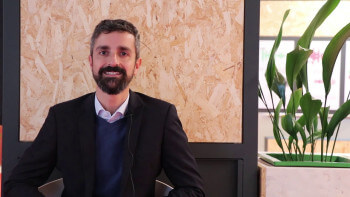
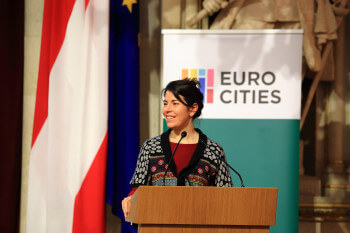
Room: Congress room 1 & 2
This session will provide the opportunity for politicians to exchange with representatives from the Young City Shapers programme on the broader political dimensions of urban decision-making.
Restricted access
Room: Congress room 1 & 2
One year after the launch of the Eurocities Shadow Commission during the 2024 European Elections campaign, it is high time for the Shadow Commissioners to meet in person. The Shadow Commission has been a key body in leveraging the network’s advocacy and influence on the EU political agenda. This session will provide an opportunity for Eurocities Shadow Commissioners to exchange experiences, recognise their achievements, and look ahead to the next milestones. This will also be an opportunity to look at the lessons learned by the Shadow Commissioners during their mandate and discuss ways for Mayors to be better involved in EU affairs. A family picture with all members of the shadow Commission will be taken on this occasion.
Venue: Torre da Naia, R. da Torre, Gondizalves, 4705-303 Braga, Portugal
Format: seated dinner
Dress code: formal attire
On June 6th between 7:00 and 8:00 am, participants are invited to join a Yoga session. This practice focuses on the connection between body, mind, and spirit through movement, breathing, and mindfulness. If weather and ground conditions permit, the yoga session may be moved to the nearby Parque da Ponte for an even more serene experience.
The activity will take place at Estádio 1º de Maio, with the meeting point at the entrance gate, located across from the Ponte swimming pool entrance.
Room: Congress room 6
Room: Congress room 3 + 4 & 5
An interactive networking session for cities to share their knowledge and experience.
Please check the speednetworking grid to select the sessions you wish to join.
Room: Small Auditorium
Becoming a Eurocities ambassador for the next EU budget
As the EU prepares its next Multiannual Financial Framework (MFF), the direction of future funding is at a crossroads. Current proposals suggest a shift toward greater centralisation, with national governments set to control the majority of the EU budget—potentially sidelining cities from direct access to key funds. This session will explore the risks of this trend, including the potential merging of vital EU programmes into a single competitiveness fund. With cities on the frontline of delivering EU priorities, mayors must step up as advocates for urban interests. Join this session to understand what’s at stake and how city leaders can influence the negotiations to secure a fair, inclusive, and future-ready EU budget.
Room: Grande Auditorio
Room: Grande Auditorio
- Young city shapers - highlights & lessons
- Closing words from
- Newly elected president of Eurocities
- Ricardo RIo, mayor of Braga

- Porto SOLD OUT!
Porto is a forward-looking city, proud of its tradition, while committing to a sustainable future.
As part of the city visit to this unique European city, embark in an opportunity to discover Porto’s rich cultural heritage as well as success stories in urban regeneration and commerce revitalisation.
The visit aims to showcase the city's historical landmarks and local economic ecosystem.
Join us to explore first-hand how Porto seamlessly blends tradition with innovation.
- Guimaraes
Guimarães is a historic City where our past is leveraging for green, digital and social innovation.
As part of the city’s visit to Guimarães, the 2026 European Green Capital, we invite you to immerse yourself in the new generation of NZEB public buildings that embody the city’s “Do No Harm" vision. This includes the successful project of retention basins, which have prevented flooding that has affected our UNESCO heritage for many years, as well as the unique Landscape Laboratory: a research and development centre and hub for environmental education, representing a joint effort between the municipality of Guimarães, the University of Minho, and the University of Trás-os-Montes.
